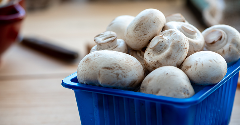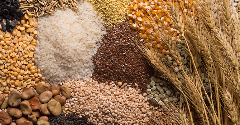News
Acosta: it's all about brand strategy
14 Jun 2018As the brick-and-mortar grocery industry faces increasing competition from all angles, an effective brand strategy can be the key to sustained success for retailers, according to Acosta.

As the brick-and-mortar grocery industry faces increasing competition from all angles, an effective brand strategy can be the key to sustained success for retailers, according to Acosta – a full-service sales and marketing agency in the consumer packaged goods industry, and the company’s Why Brands Matter report. Shoppers, it says, turn to different brands for different needs and seek a balance when it comes to retailers and brand offerings.
“Brands are the fuel that powers shoppers to make more trips, spend more per trip and stay loyal to products and channels,” said John Clevenger, Managing Director and Senior Vice President, Strategic Advisors, at Acosta. “National brands continue to dominate, with a worth of over $558 billion in 2017, compared to $124 billion for private label brands, which are marketed by the retailer under their own brand and typically positioned as lower-cost alternatives to national brands. A study of more than 100 retailers revealed that the retailers growing both national and private label brands are experiencing the best overall growth, proving that a strategic mix is key.”Acosta’s 2018 Why Brands Matter report takes an in-depth look at the value and current state of US national and private label brands, highlighting: Why Brands Matter+ While there are a variety of reasons shoppers may choose a private label brand, cost savings is the primary driver.+ Many shoppers view purchasing private label brands (or store brands) as a compromise; overall, shoppers view national brands to be superior to their private label brand counterparts in most categories. + Shoppers felt “name brands are better than store brands” in 41 out of 53 categories. + Shoppers felt “name brands and store brands are ‘about the same’” in 12 out of 53 categories. + Shoppers felt “store brands are better than name brands” in 0 out of 53 categories. + Shopping trips driven by national brand purchases are more valuable than private label brand trips on average by 65%.+ The top three reasons shoppers said they purchased national brand products while grocery shopping were: + “National brand products are higher quality in taste and/or performance.” + I can get better deals on national brands (through sales/coupons).” + “I trust national brand products more.”Not All Categories Are Created Equal+ Generally, the more personal, innovative and differentiated the category, the more likely a shopper will choose a national brand over a private label brand.+ Several of the categories for which shoppers indicated they purchased national brands “exclusively” or “mostly” are personal care products used on or applied to the body. + Nearly all of the categories for which shoppers reported “exclusively” or “mostly” selecting private label brands tend to contain staple items that are consumed.The Value Channel is Growing+ Value is one of the fastest growing channels. + While the value channel has a large emphasis on private label brands, this isn’t necessarily what is driving shopper traffic. Shoppers reported that the highest influencers driving them to the value channel are best everyday prices (49%), better value for their money (47%) and cost savings/help with budget (45%). + Despite its growth, the value channel has limited appeal among a limited base of fans. Shoppers that frequent the grocery and mass/super channels find that value retailers fall short in fresh foods, convenience and promotions.“To craft the best possible brand strategy, use research and analysis to help strike the right balance with national and private label brands in each department and category,” added Clevenger. “A clear takeaway for retailers is that they should understand the different roles national and private brands play. Manufacturers should concentrate on telling a compelling brand story and selling their expertise and understanding to build a brand connection with shoppers.”Acosta’s 2018 Why Brands Matter report was completed via an online survey of the company’s customer shopper community panel as well as multiple Nielsen research reports.Related news

Is the price of a sustainable and healthy diet… unsustainable?
4 Mar 2025
Healthier foods are more than twice as expensive per calorie as less healthy foods, with healthier food increasing in price at twice the rate in the past two years.
Read more
Does calorie labelling lead to reduced consumption?
27 Feb 2025
Calorie labelling of food products leads to a small, but consistent, reduction in the number of calories consumed, a study suggests.
Read more
Brands, retailers, and countries remain divided over Nutri-Score labels
30 Jan 2025
Europe's supermarkets and manufacturers are far from aligned over a standarised approach to nutrition labelling. Some welcome the non-mandatory Nutri-Score labels with open arms, while others have “considerable concerns”.
Read more
EU Parliament passes stricter packaging rules
20 Jan 2025
The European Parliament voted to approve updates to the packaging and packaging waste regulation, including enforceable re-use targets, limits on certain single-use packaging types, and restrictions on the use of PFAS “forever chemicals”.
Read more
Louis Drefyus Company powers on in plant-based with BASF ingredients acquisition
17 Jan 2025
BASF has agreed to sell its food and health performance ingredients business to Louis Dreyfus Company (LDC).
Read more
Major Belgian retailers promise standardised, reusable packaging at scale
16 Jan 2025
Albert Heijn, Aldi, Carrefour, Colruyt, Delhaize, and Lidl have launched a new reusable packaging coalition that aims to accelerate the use of reusable packaging, starting with mushrooms.
Read more
Kraft Heinz, Mondelēz, Coca-Cola, and Nestlé accused of marketing ‘addictive’ UPFs at children
15 Jan 2025
Major food manufacturers have been hit with a first-of-its-kind lawsuit alleging that they specifically engineer their ultra-processed foods (UPFs) to be addictive, and that they market the products towards children.
Read more
FDA reviews red food colour additive, Red No.3
9 Jan 2025
Amid considerations to tighten regulations around artificial ingredients, the US Food and Drug Administration (FDA) is exploring a potential ban on particular type of red food dye.
Read more
Sperri builds investment momentum with US expansion plans
7 Jan 2025
Hailed as Canada’s first organic and allergen-free plant-based meal replacement drink, food-as-medicine brand Sperri progresses its efforts to enter the US market.
Read more
Is it time for a global definition of whole grain?
30 Dec 2024
Amid a lack of harmonisation, the European Food Information Council (EUFIC) is calling for a global definition of the term whole grain to end consumer confusion.
Read more